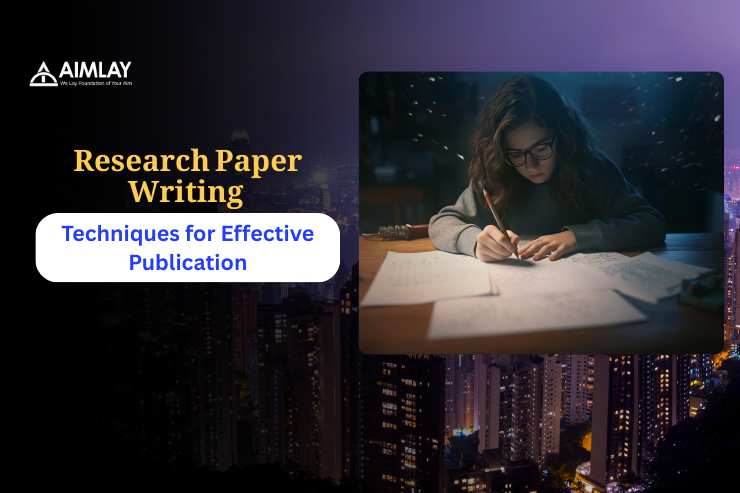PhD for Working Professionals in 2025: The Ultimate Career Guide
- aimlay01
- Jul 14, 2025
- 4 min read
Introduction
In today's knowledge-driven and competitive economy, many professionals choose to pursue a PhD for working professionals. Earning a PhD by 2025 will be easier than ever thanks to flexible options such as online PhDs, executive doctoral tracks, and part-time programs.
This comprehensive guide explores everything that working professionals should know about earning a PhD Admission 2025. We cover benefits, challenges and the best programs. It also explains how to balance life, work and research.

Why Pursue a PhD as a Working Professional?
1. Career Advancement
Many mid-career professionals pursue doctoral degrees to access leadership roles, policy-making positions, or senior research posts. A PhD can boost your credibility, especially in industries like healthcare, education, technology, social sciences, and business.
2. Research Contribution
If you’re passionate about making a significant contribution to your field through research and innovation, a PhD provides the perfect platform.
3. Transition to Academia
A PhD is often essential for a teaching or research position at universities. Working professionals in education often pursue a doctorate to qualify for tenure-track jobs.
4. Personal Fulfillment
For many, a PhD is the ultimate academic challenge and a goal they’ve always wanted to achieve. It’s a journey of intellectual growth and self-discovery.
What Makes 2025 a Great Year to Start a PhD?
Flexible Learning Options: More universities than ever offer hybrid, part-time, and online PhD programs.
Global Recognition: Many institutions now offer internationally recognized PhD programs tailored to working adults.
AI and Data Integration: Research tools powered by AI, like ChatGPT, make literature reviews, data analysis, and writing support faster and smarter.
Funding Opportunities: Scholarships and employer-sponsored PhD tracks are more accessible than in previous years.
Types of PhD Programs for Working Professionals
1. Part-Time PhD
Duration: 5–7 years
Designed for professionals who want to continue working while studying.
Common in Europe, UK, India, and select U.S. institutions.
2. Online PhD
Combines virtual classes with online supervision.
Popular in fields like education, business, psychology, and computer science.
Institutions: Walden University, University of the People, Open University (UK)
3. Executive PhD / DBA / EdD
Tailored for senior professionals.
Often combines coursework with applied research.
Examples: Doctor of Business Administration (DBA), Doctor of Education (EdD)
4. Distance Learning PhD
Similar to online PhD but often includes a few in-person sessions or residencies.
Offered by universities like the University of London, IGNOU (India), and more.
Top Fields for PhDs Among Working Professionals in 2025
Field | Common Programs | Field |
Business & Management | DBA, PhD in Management | Business & Management |
Education | EdD, PhD in Education | Education |
Computer Science | PhD in AI, Data Science, CS | Computer Science |
Healthcare | PhD in Nursing, Public Health | Healthcare |
Social Sciences | PhD in Psychology, Sociology | Social Sciences |
Best PhD Programs for Working Professionals (2025)
Here are a few institutions known for flexibility and quality:
1. University of London (UK)
Offers flexible, distance PhD programs in various fields with top-tier research support.
2. Walden University (USA)
Accredited online PhD programs with strong student support and flexible timelines.
3. Indira Gandhi National Open University (India)
Affordable and recognized PhD programs for professionals in India and abroad.
4. Capella University (USA)
Offers competency-based PhD programs in business, education, and psychology.
5. University of South Africa (UNISA)
One of Africa’s top distance learning institutions offering diverse doctoral programs.
How to Apply for a PhD as a Working Professional
1. Choose the Right Program
Research mode vs coursework + research
Online or hybrid delivery
Accreditation and global recognition
2. Prepare Your Proposal
Most PhD applications require a research proposal outlining your intended area of study.
3. Obtain Employer Support
If your research aligns with your job, your company may support you financially or with flexible hours.
4. Secure Recommendations
Strong academic or professional recommendations are critical.
5. Prepare for Interviews
Many PhD programs conduct interviews to assess research readiness and commitment.
Balancing Work, Life, and a PhD
Tips for Success:
Time Management: Use tools like Trello, Notion, or Google Calendar to organize your schedule.
Set Realistic Goals: Break your research into manageable milestones.
Communicate: Keep your employer and advisor informed about major deadlines or work conflicts.
Leverage Technology: Use AI tools for brainstorming, editing, and organizing your thesis.
Self-Care: Mental and physical health are crucial—don’t sacrifice sleep or social connections.
Common Challenges and How to Overcome Them
Challenge | Solution |
Time constraints | Block dedicated time weekly; avoid multitasking |
Lack of motivation | Join peer support groups or online PhD forums |
Financial pressure | Explore scholarships, assistantships, or employer funding |
Research burnout | Take breaks, celebrate small wins, and seek mentorship |
Isolation | Stay engaged with academic communities or LinkedIn groups |
Funding and Scholarships for Working Professionals
Employer Sponsorship
Many organizations invest in employees’ education, especially if it benefits the company.
Government Grants
Explore options like the Fulbright Program, NSF Fellowships, or UGC (India) grants.
University Aid
Some institutions offer tuition discounts, research assistantships, or alumni scholarships.
Final Thoughts: Is a PhD Worth It in 2025?
A PhD is an investment in the future, not only in your career but also in your intellectual development and your personal growth. The journey may be challenging for working professionals but the rewards are enormous in terms of increased knowledge, credibility and career growth.
The best time to begin your doctoral studies is 2025, thanks to the flexible learning models, online tools and increased institutional support.








Comments